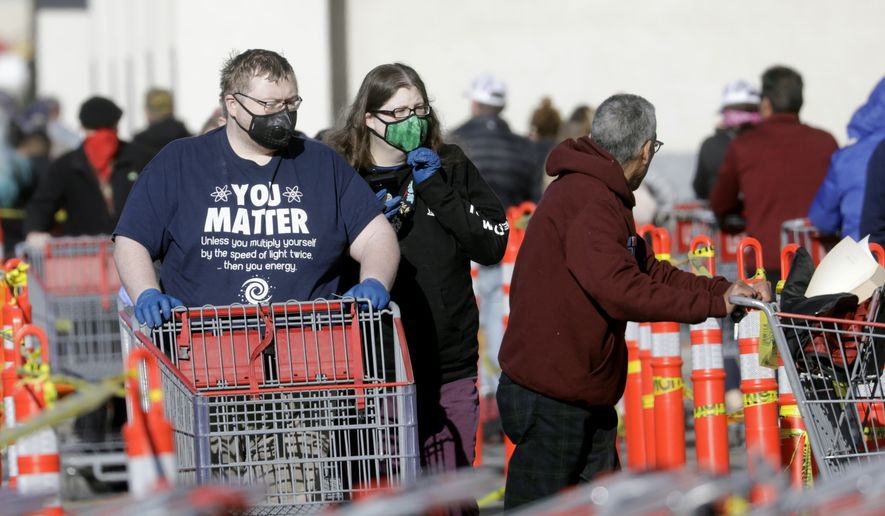Should I wear a face mask in public?
Mixed messages from U.S. officials could partly explain why not as many Americans are wearing masks in public and heeding to the new advice issued by the Centers for Disease Control and Prevention, Dr. William Schaffner, an infectious disease specialist at Vanderbilt University, said Monday.
The CDC has changed its guidelines, recommending individuals wear cloth masks in public places such as grocery stores and pharmacies and reverting course from what it said earlier in the coronavirus pandemic.
President Trump, who shared the updated guidelines Friday, said the recommendations are voluntary and indicated that he would not wear a face mask.
Dr. Schaffner said he and his wife began wearing face masks in public about a week ago, adding he’d only seen about 20% of shoppers wearing them during his trip to the supermarket this weekend.
“I think it’s potentially helpful, but I really think it needs to be promoted,” said Dr. Schaffner. “There’s still a lot of people who aren’t wearing any facial covering or respiratory protection whether it’s a mask, shawl, bandana or whatever.”
The CDC altered its guidelines due to recent studies that show a “significant portion” of individuals with coronavirus don’t exhibit symptoms and that those who eventually develop symptoms can transmit the virus — meaning the virus can spread through speaking, coughing or sneezing from people who are asymptomatic or pre-symptomatic.
Due to the new evidence, the CDC is suggesting wearing cloth face coverings in public areas where social distancing is difficult while still following the 6-feet apart rule.
“If someone is sick, they may be less likely to spread infectious droplets if they are wearing a mask. I am unclear whether those who are not sick benefit,” Dr. Amesh Adalja, a senior scholar for the Johns Hopkins Center for Health Security, said of the updated guidance.
Dr. Adalja added that he is worried people will not practice proper mask etiquette and might touch their faces or adjust their face masks with their hands, contaminating themselves.
“I’m also worried that they will get a false sense of security and not wash their hands as much or social distance as much. There is also the concern that they may inadvertently spread infectious droplets by not taking care of their mask and leaving it around to contaminate surfaces or others,” he said.
The CDC recommendations for the public do not include the surgical masks or N-95 respirators, which the agency says are “critical supplies” that must be reserved for health care workers and other medical responders.
State and local officials have pushed for face mask precautions to reduce the spread of the virus, and some cities even began setting up fines for failing to wear a mask, The Conversation reported. In Laredo, Texas, anyone not covering their nose and mouth with a face mask could be fined up to $1,000, according to the city’s emergency ordinance.
Dr. Schaffner said by wearing masks, “We’re all protecting each other.” He said there needs to be more instruction on how to use and store cloth face masks and offered some tips.
χ Make sure the mask is covering the nose and mouth and fits as closely to the cheeks as possible.
χ Just touch the sides of the mask or the ear handles and not the front of the mask.
χ Feel free to wash cloth masks, although he said there shouldn’t be a need to wash them too frequently if reserved for just going to public places such as grocery stores.
χ Store masks in a dry, separate area such as a drawer or a paper bag by the front door. Make sure to label which masks belong to whom on the paper bag.
χ If masks get soiled or disfigured, then discard them.
χ After removing masks, wash your hands.
χ Follow the manufacturer instructions for face masks.
χ Still maintain the recommended 6-feet physical distance.
• Shen Wu Tan can be reached at stan@washingtontimes.com.




Please read our comment policy before commenting.